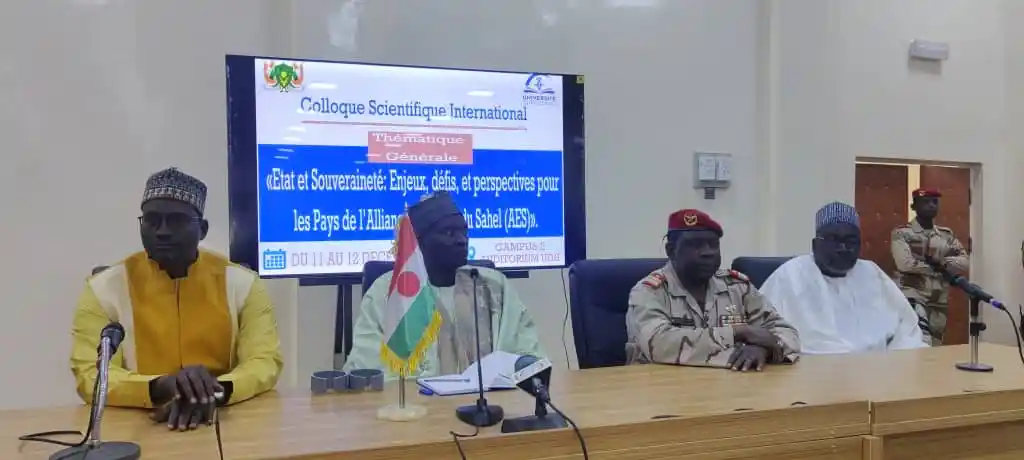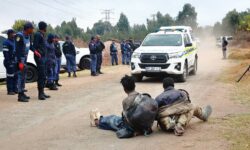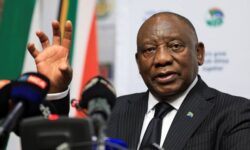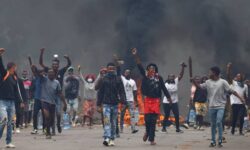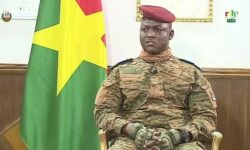International Symposium at Tahoua Cibo Hamani University: “State and Sovereignty: Issues, Challenges, and Expectations for Sahel States Alliance (AES)”
The international symposium organized by Tahoua Cibo Hamani University under the theme “State and Sovereignty: Issues, Challenges, and Expectations for Sahel States Alliance (AES)” concluded its sessions on Thursday, December 12, 2024. Participants addressed all the challenges related to the declaration of full sovereignty for AES countries and proposed potential solutions for achieving this goal.
The aim of the conference was emphasized as “contributing to a reflection on the importance of sovereignty and placing its dimensions at the center of political, economic, social, and cultural discussions.”
In this regard, the symposium sought to “define the conditions for a true break from over 60 years of experience of Sahel states.” In other words, the participants called for “rethinking a new Sahel that leads the struggle to break free from terrorist and impoverished clichés and positions itself differently.”
Therefore, the participants identified various challenges and expectations for the sovereignty of the AES.
Defense and Security Challenges
The listed challenges in defense and security revolve around the spread of terrorism, armed banditry, and other forms of illicit trafficking; the need to build strong security apparatuses; the establishment of a collective defense and security mechanism; and the effective and efficient operationalization of the “collective defense and mutual assistance architecture” that has been established by the AES.
At the political governance level, challenges were identified regarding ensuring the integration of peoples for the people and the issue of states leaving part of their sovereignty to the Alliance.
Socio-Economic Challenges
At the socio-economic level, the identified challenges include access to or promotion of certain market types; securing productive resources; ensuring proper access; adopting agro-ecological practices; the inability of the CFA franc to promote intra-regional trade; the impediment to economies’ competitiveness; financial constraints related to BCEAO’s monetary policy; destabilization of the family as the foundation of education; the road of borrowed education; an inefficient society; a society losing its moral values; the continued colonization of crops; the culture of citizenship; institutionalizing culture; creating a cultural industry and culture inventory.
Sovereignty and Development Challenges
Regarding sovereignty and development, the symposium addressed issues such as economic integration; the consequences of exiting ECOWAS; the development of a stable sovereignty and security area; coordination of defense, security, diplomatic, and development actions; endemic poverty; lack of infrastructure; corruption; absence of a permanent secretariat; and political malpractices.
Perspectives and Proposals
Participants in the symposium proposed, among other things, a defense and security plan, the collective removal of armed forces, the enhancement of military capabilities through the acquisition of air and ground combat vehicles; diversification of strategic partners to ensure the sovereignty of AES is not compromised; defining a strategic concept or autonomous defense doctrine and a joint action plan; establishing joint operations in the field; creating rapid intervention forces; combining military vehicle production with industrialization projects; establishing an information and intelligence-sharing mechanism; operationalizing the Sahel States Unified Force; building public trust through popular education; developing military, scientific, and technological research; inviting universities to conduct research to support political authorities; establishing a defense and security investment fund; creating an AES war school; and designing a confederal model leading to a federal system, as well as developing cybersecurity strategies.
Political Governance Proposals
From a political governance perspective, the symposium proposed a strong foundation for sovereignty based on the rule of law, adapted legal systems, good governance, and republican pacts; ensuring the State’s presence across AES territories; controlling the diversification of partners to create a real development source and ensure full use of sovereignty without external aid; and creating legislative actions on social networks.
Socio-Economic Proposals
Participants in the Tahoua symposium supported the financing of development through the establishment of an investment bank and a stabilization fund; building interconnection infrastructure (roads, airways, railway networks, telecommunications, etc.); structuring and integrating infrastructure and projects in strategic sectors such as agriculture, food, mining, and energy; defining consistent agricultural objectives (including livestock and fisheries); supporting the development and promotion of local products; enhancing the capacities, skills, and performance of economic actors; investing in integrated agricultural production systems; organizing regional markets; establishing a food sovereignty stock; developing a common agricultural and nutrition policy for AES; creating a currency based on a more or less flexible parity with a basket of currencies; ensuring political commitment; coordinating the currency creation process; and building an education system rooted in our cultural values.
Sovereignty and Development Tools
In terms of sovereignty and development tools, the symposium at Tahoua University recommended the realization of large confederal infrastructures; calling for the establishment of a partnership between ECOWAS and AES authorities, expanding it to other countries, and transforming it into an alliance of sovereign states with opportunities to unite and build a prosperous and dynamic economy.








